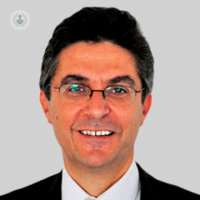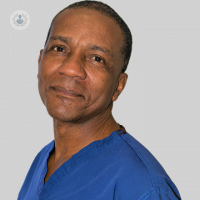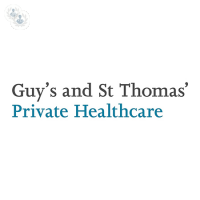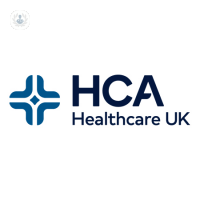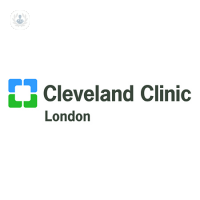What is primary biliary cholangitis (PBC)?
Primary biliary cholangitis, otherwise known as primary biliary cirrhosis, or more commonly PBC is a liver disease, where the bile ducts become damaged. The bile ducts are important for carrying bile fluid from the liver to the stomach, used for breaking down and digesting food. PBC causes damage to the bile ducts, meaning bile fluid cannot travel through them, leading to a build-up of bile fluid in the liver, which in turn leads to cirrhosis of the liver. This is usally tended to by a gastroenterologist.
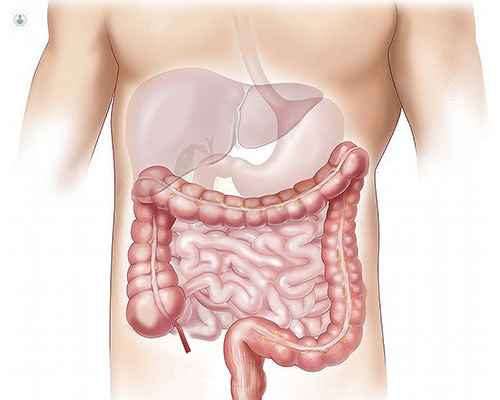
What are the symptoms of PBC?
The symptoms of primary biliary cholangitis are minimal or non-existent in the early stages, but can eventually lead to the following:
- Extreme tiredness (fatigue) no matter how much you rest
- Unexplained itchiness anywhere on the body (otherwise known as Pruritus). The itchiness doesn’t go away, even when you scratch it
- Dry mouth and dry eyes
- Pain in the upper abdomen
PBC is often diagnosed following the diagnosis of a problem with the liver, which may be picked up following a routine blood test.
What are the causes of PBC?
The causes of primary biliary cholangitis are not fully understood, however it is believed to be an autoimmune disease (a disease caused by the body’s natural reaction to an infection or disease), which occurs when the body mistakenly attacks the bile ducts.
When the bile ducts are attacked, they become damaged, swollen, and scarring occurs meaning the bile ducts don’t function properly. Bile fluid is not able to flow, and becomes backed up in the liver, causing damage to the liver.
Who is affected by PBC?
PBC affects approximately 20,000 people in the UK, with around 90% of those affected being women aged between 40 and 60, though it can be diagnosed at any age. PBC affects more people on average in the UK, than in other parts of the world, though the reason for this is unknown.
How is PBC treated?
There is currently no known cure for PBC. The condition gradually gets worse over time, as the damage to the bile ducts becomes more extensive. There are certain medications available that slow the progress of the disease down. Medications are also prescribed to help with the itchiness associated with the disease.
11-06-2017 07-18-2023Primary biliary cholangitis (PBC)
Dr Richard Sarsam - Gastroenterology
Created on: 11-06-2017
Updated on: 07-18-2023
Edited by: Kate Forristal
What is primary biliary cholangitis (PBC)?
Primary biliary cholangitis, otherwise known as primary biliary cirrhosis, or more commonly PBC is a liver disease, where the bile ducts become damaged. The bile ducts are important for carrying bile fluid from the liver to the stomach, used for breaking down and digesting food. PBC causes damage to the bile ducts, meaning bile fluid cannot travel through them, leading to a build-up of bile fluid in the liver, which in turn leads to cirrhosis of the liver. This is usally tended to by a gastroenterologist.

What are the symptoms of PBC?
The symptoms of primary biliary cholangitis are minimal or non-existent in the early stages, but can eventually lead to the following:
- Extreme tiredness (fatigue) no matter how much you rest
- Unexplained itchiness anywhere on the body (otherwise known as Pruritus). The itchiness doesn’t go away, even when you scratch it
- Dry mouth and dry eyes
- Pain in the upper abdomen
PBC is often diagnosed following the diagnosis of a problem with the liver, which may be picked up following a routine blood test.
What are the causes of PBC?
The causes of primary biliary cholangitis are not fully understood, however it is believed to be an autoimmune disease (a disease caused by the body’s natural reaction to an infection or disease), which occurs when the body mistakenly attacks the bile ducts.
When the bile ducts are attacked, they become damaged, swollen, and scarring occurs meaning the bile ducts don’t function properly. Bile fluid is not able to flow, and becomes backed up in the liver, causing damage to the liver.
Who is affected by PBC?
PBC affects approximately 20,000 people in the UK, with around 90% of those affected being women aged between 40 and 60, though it can be diagnosed at any age. PBC affects more people on average in the UK, than in other parts of the world, though the reason for this is unknown.
How is PBC treated?
There is currently no known cure for PBC. The condition gradually gets worse over time, as the damage to the bile ducts becomes more extensive. There are certain medications available that slow the progress of the disease down. Medications are also prescribed to help with the itchiness associated with the disease.


What to do about gallbladder pain
By Mr Yüksel Gerçek
2025-01-28
While gallstones are common, associated problems are less likely to occur. However, it's important to know how to react when a gallbladder issue arises and Mr Yüksel Gerçek advises on this eventuality in this informative article. See more
Experts in Primary biliary cholangitis (PBC)
-
Dr Andrew Peter Holt
Hepatology (liver specialist)Expert in:
- Cirrhosis
- Alcoholic liver disease
- Fatty liver
- Viral hepatitis
- Primary biliary cholangitis (PBC)
- Liver transplant
-
Dr Jude A. Oben
Hepatology (liver specialist)Expert in:
- Autoimmune hepatitis
- Fatty liver
- Haemochromatosis
- Liver function tests
- Primary biliary cholangitis (PBC)
- Primary sclerosing cholangitis (PSC)
-
Dr Michael Chapman
GastroenterologyExpert in:
- Endoscopy
- Abdominal pain
- Primary sclerosing cholangitis (PSC)
- Primary biliary cholangitis (PBC)
- Pancreatitis
- Liver disease
-
Dr Vishal Chandrakant Patel
GastroenterologyExpert in:
- Liver disease
- Autoimmune hepatitis
- Fatty liver
- Cirrhosis
- Primary biliary cholangitis (PBC)
- Primary sclerosing cholangitis (PSC)
- See all

Westminster Bridge Consulting Rooms at St Thomas' Hospital Private Healthcare.
Westminster Bridge Consulting Rooms at St Thomas' Hospital Private Healthcare.
Westminster Bridge Road, London
No existe teléfono en el centro.
By using the telephone number provided by TOP DOCTORS, you automatically agree to let us use your phone number for statistical and commercial purposes. For further information, read our Privacy Policy
Top Doctors

London Bridge Hospital - part of HCA Healthcare
London Bridge Hospital - part of HCA Healthcare
27 Tooley St
No existe teléfono en el centro.
By using the telephone number provided by TOP DOCTORS, you automatically agree to let us use your phone number for statistical and commercial purposes. For further information, read our Privacy Policy
Top Doctors

Cleveland Clinic Moorgate Outpatient Centre
Cleveland Clinic Moorgate Outpatient Centre
55 Moorgate, EC2R 6BH
No existe teléfono en el centro.
By using the telephone number provided by TOP DOCTORS, you automatically agree to let us use your phone number for statistical and commercial purposes. For further information, read our Privacy Policy
Top Doctors
-
Westminster Bridge Consulting Rooms at St Thomas' Hospital Private Healthcare.
Westminster Bridge Road, London , SE1 South Bank LondonExpert in:
- General Surgery
- Orthopaedic surgery
- Plastic surgery, reconstructive and aesthetics
- Endocrinology
- Obstetrics and Gynaecology
- Paediatrics
-
London Bridge Hospital - part of HCA Healthcare
27 Tooley St, Central LondonExpert in:
- 24-hour service
- Cardiology
- Minimal access surgery (keyhole surgery)
- Orthopaedic surgery
- Cardiovascular disease
- Gastroenterology
-
Cleveland Clinic Moorgate Outpatient Centre
55 Moorgate, EC2R 6BH, Central LondonExpert in:
- Digestive
- Cardiology
- Dermatology
- Diagnostic Imaging
- Diagnostics
- Obstetrics and Gynaecology
- Most viewed diseases, medical tests, and treatments
- Alzheimer's disease
- Nutrition
- Abdominal pain
- Anxiety
- Stress
- Digestive diseases
- Intestinal pseudo-obstruction
- Hirschsprung's disease
- Anorectal malformation
- Obstructed defecation syndrome
